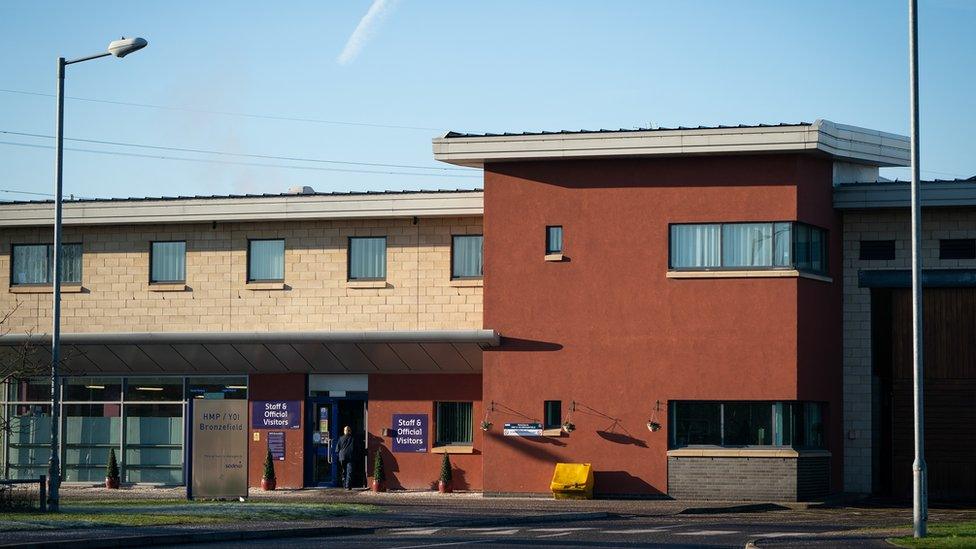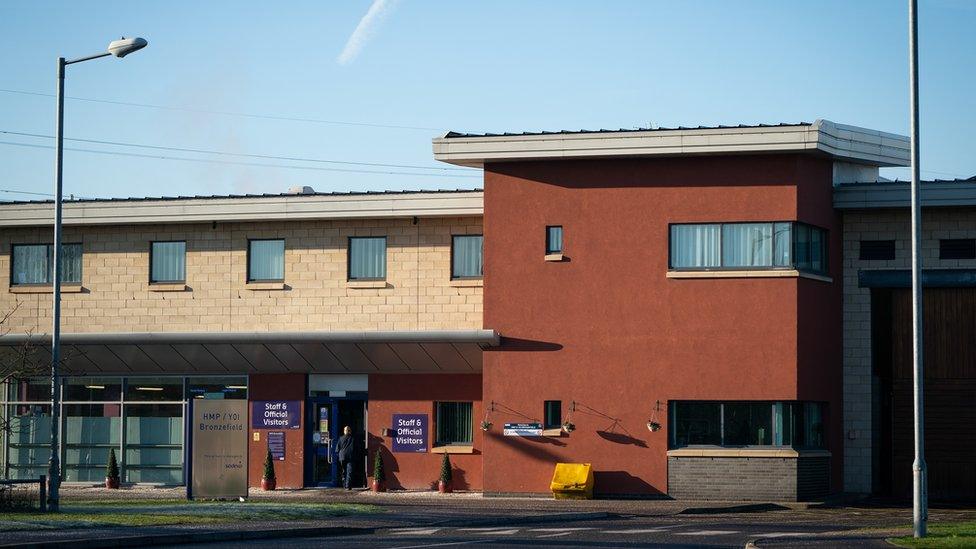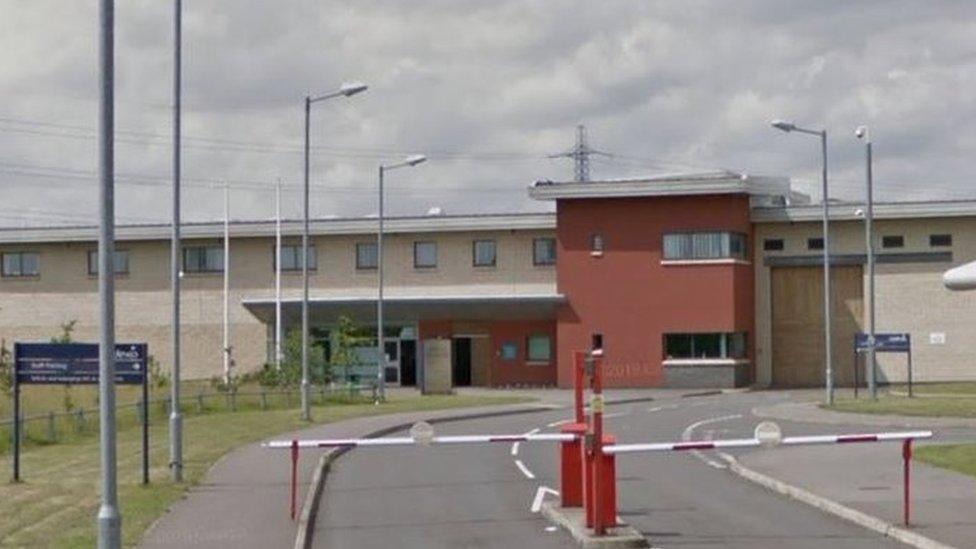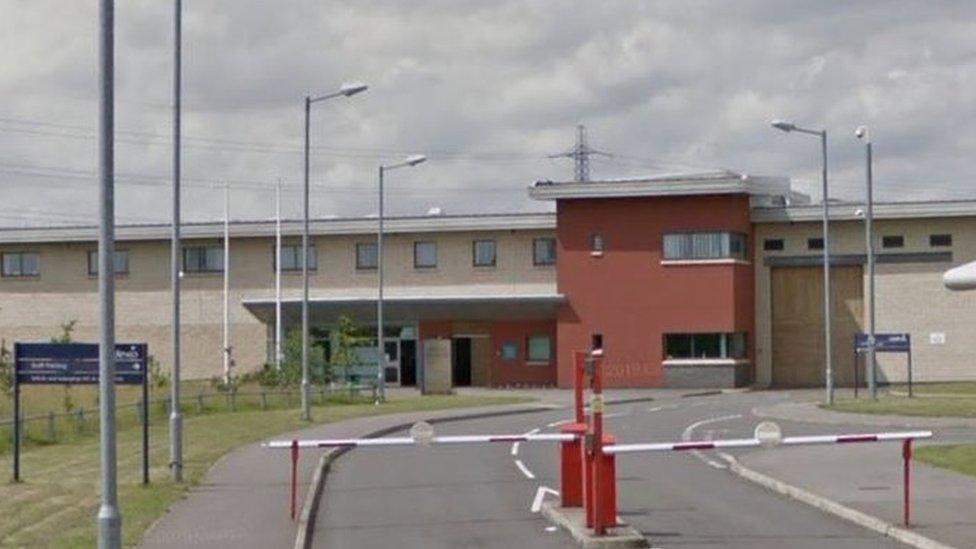HMP Bronzefield: Mum whose baby died in jail says system is cruel
- Published

Aisha Cleary was born in a prison cell at HMP Bronzefield without medical assistance
The mother of a baby who died shortly after being born in prison is urging ministers to stop sending pregnant women to jail.
Aisha Cleary was born at HMP Bronzefield in Surrey on 27 September 2019, but died hours later.
An inquest earlier this year heard two calls to prison staff from her mother, Rianna Cleary, who was 18 at the time, went unanswered.
The Ministry of Justice said custody was "always the last resort for women".
Surrey coroner Richard Travers said there was "clear evidence" of "systemic failings".
Speaking at the end of the inquest in Woking he said the failings by state agencies "more than minimally contributed" to the baby's death.
However, he has been criticised by charities for deciding not to order a prevention of future deaths report, which a coroner can issue when they believe action must be taken to prevent such deaths.
Ms Cleary said: "The way the prisons are run, it is all about power and control. They will never be caring places.
"Prison officers do not always follow policy. Look what happened to me when I pressed my cell bell twice - nobody came," she said.
"The system is cruel and will never be a safe place to have a baby.
"Everybody now accepts that all pregnancies in prison are high risk, so why was I sent there?"
'Damning failures'
Before the birth, Ms Cleary had not been engaging with nurses because she was worried her baby would be taken away, the inquest was told.
Ms Cleary told the hearing she began to experience pain the day before the birth, and made two calls to staff asking for a nurse and ambulance, but none arrived.
She later fell asleep and delivered her baby during the night after losing blood.
Ms Cleary says she is now supporting a campaign calling for an end in sending pregnant women to prison.
Selen Cavcav, from the charity Inquest, said: "We are disappointed that the coroner has decided not to issue a prevention of future deaths report following this inquest which exposed one of the most damning failures in our prison system."
An MoJ spokesman said: "Custody is always the last resort for women and independent judges consider mitigating factors, like pregnancy, when making sentencing decisions," he said.
"Since this tragic case we have made meaningful progress in improving the care available for pregnant women in jail, such as employing specialist mother and baby liaison officers in every female prison, and enhancing welfare checks and social services support."

Follow BBC South East on Facebook, external, on X, external, and on Instagram, external. Send your story ideas to southeasttoday@bbc.co.uk, external.
Related topics
- Published28 July 2023

- Published25 September 2022

- Published22 September 2021

- Published8 October 2019

- Published5 November 2019

- Published4 October 2019
